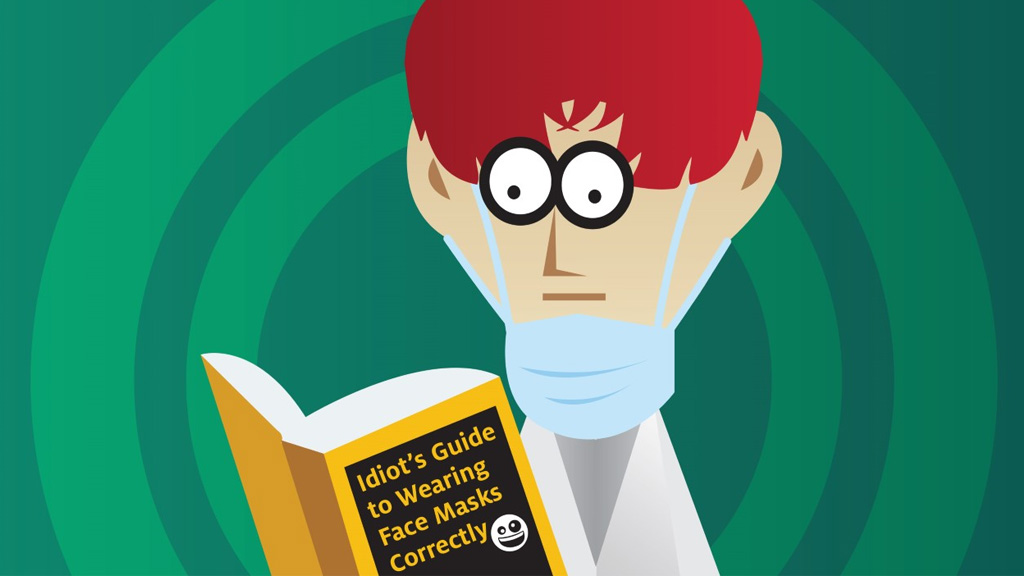Face mask usage
Last week, Houston Judge Lina Hidalgo announced an order that would mandate Houstonians wear face masks for the next 30 days or else face a fine of up to $1,000. While this order drew its share of criticism, it sparked interest in the effectiveness of masks and face mask usage in general. Here, we will outline some important guidelines for optimizing face mask use, as put forth by the Center for Disease Control (CDC).
The CDC recommends using cloth face coverings publicly in order to minimize the infectiousness of coronavirus. Here are some face mask facts to consider during the next 30 days and beyond.
Face mask usage isn’t a free pass to go out more often
Masks should be worn as a supplemental precaution. They are merely additions and not substitutes for precautions you should already be taking. “It is surprising how this still needs to be reiterated, but you should still wash your hands frequently. You should still practice social distancing. And you should still stay home,” said Beth Skwarecki, senior health editor for Healthy Living and author of Outbreak and Genetics 101.
Face mask usage does not form some magical shield against contaminants and airborne impurities. Sure, maybe one day we’ll have face masks designed with nanotechnology that obliterates all impurities on contact. But this day isn’t today. Although there is a shortage of medical masks, you should remember that these masks still work far better than homemade masks or cloth masks according to the National Institute of Health.
“Viruses can still spread on your hands and your belongings. They can escape your mask through the gaps or when you remove it to breathe or talk. Viruses can even penetrate mask fabrics, particularly if the mask is even remotely wet. Masks do not offer absolute protection, so don’t use a mask as an excuse to go out and start gathering in crowds,” said Skwarecki.
Dispose of masks as soon as you remove them
Masks are designed to stop the spread of respiratory droplets. So, after only a few hours of wearing one, you can bet that your mask if teeming with droplets. Fortunately, there are still some precautions you can take to keep from spreading these droplets around.
“Avoid touching your mask and wash your hands often. At the very least, use alcohol-based sanitizer,” explained Skwarecki.
“Replace your mask immediately upon recognizing dampness. And of course, don’t reuse them!” she continued.
Further, to remove your mask, make sure to do so from behind. Try not to touch the front part of the mask. Dispose of the mask as soon as you remove it and wash your hands.
Why does the CDC recommend cloth masks not medical masks?
To put it quite simply, there is not enough to go around. There is a shortage of medical grade N95 masks and they must be reserved for healthcare workers. Per the CDC’s website, “Surgical masks and N95 respirators are in short supply and should be reserved for healthcare workers or other medical first responders, as recommended by CDC guidance.”
Please, do not purchase surgical or N95 masks out of fear. While face mask usage is encouraged, do not buy masks you don’t need will exacerbate the already mounting problems doctors and nurses are facing right now. Not only that, but people who are suffering and hospitalized will have less access to the PPE they need if people are purchasing or even hoarding it out of fear.
Here’s how to wear your cloth covering properly, according to the CDC:
- Your mask should fit snugly upon your face
- It must be secured with ties or ear loops
- It should have more than one layer of fabric
- It should allow you to breathe without extra effort
- It should be washable in a washing machine and dryer without damage or shrinkage
“You should wash your mask every day. That means two or three masks should be enough, so you don’t need to keep purchasing disposable ones. If you absolutely need a mask for peace of mind, cloth masks are recommended by the CDC for a reason: they are not perfect but they certainly offer some protection,” said Skwarecki.



